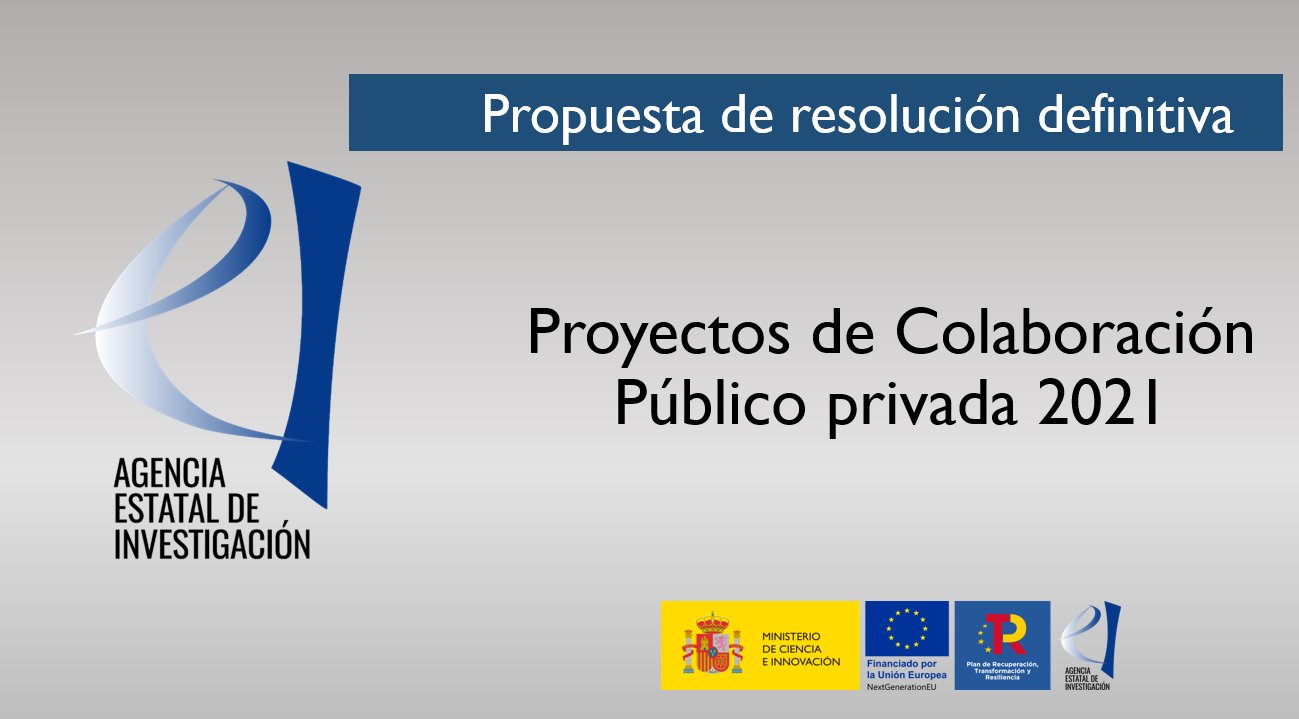The objective of this call, launched by the Ministry of Science and Innovation, is to promote the joint development of projects in cooperation between research organizations and companies, in order to generate new technologies, achieve the business application of new ideas and techniques, and contribute to the creation of new products and services.
The Institute of Technology and Renewable Energies (ITER), an entity dependent on the Cabildo Insular de Tenerife, has obtained funding for six projects submitted to the recent call for projects in public-private collaboration 2021 launched by the Ministry of Science and Innovation, within the framework of the Recovery, Transformation and Resilience Plan. The total funds obtained by ITER, adds up to € 617,736.09.
As published by the National Research Agency on November 18th 2022, in the final resolution of grants for public-private collaboration projects 2021, of the national program to promote Scientific-technical research and transference, where the Institute concurred with 9 project proposals, finally obtaining funds for 6 of them.
In order to develop and implement the projects approved in this call, ITER will collaborate with universities, such as the University of La Laguna, the Polytechnic University of Valencia and the University of Las Palmas de Gran Canaria; with R+D+i entities such as the Oceanic Platform of the Canary Islands (PLOCAN) and with companies, such as Vainsa Infraestructuras S.L and the consulting firm Elittoral.
The six projects approved in this call are the following:
The OLIDRON project “Disease detection system in olive trees, using unmanned aircraft (drones)” with a total budget of € 1,512,469.53, which aims to develop a low cost high precision monitoring system, that can give information in real time of the health status of olive crops. This system will allow the análisis of the olive plants searching for bacterium Xylella Fastidiosa or the fungus Verticillium Wilt, it will provide information about the degree of infection caused by the disease and its location.
The TWIN-DAM project “Predictive maintenance system for dams based on the development of digital twins“, with € 607,084.40 of total budget, in which an innovative low-cost predictive maintenance system for gravity dams will be implemented, based on the monitoring and diagnosis of several key parameters. The solution will allow the diagnosis of the structural health of dams in order to predict the maintenance necessary for their optimal operation.
The AERO-TWIN project “System for detecting pathologies in wind turbines through the use of a digital twin and artificial intelligence techniques“, has a total budget of € 482,239.66 and focuses on the development of an innovative integral wind turbine monitoring system, based in the identification and diagnosis of existing defects and the subsequent prediction of their evolution establishing their predictive maintenance. The system will improve the decision-making and will allow a better planned and optimized maintenance activity, with the consequent cost savings.
The LEAKWIT project “Continuous monitoring system for the storage and safe use of hydrogen in hydrogen refueling stations”, which with a total budget of € 1,243,552.99, aims to develop a new integral system for real tine detection and management of gas leaks in HRS, which are service or storage stations for hydrogen.
The PERSEO project “Autonomous Solar Powered Aerial Platform for Monitoring Pollutant events in the Marine Ecosystem” with a total budget of € 654,779.50, pursues the development of an autonomous aerial platform for the monitoring of pollutants in the ocean. This platform, with zero emissions thanks to the use of solar energy to enhance its autonomy, will be equipped with different multi-spectrum sensors and algorithms based on Artificial Intelligence (AI) integrated into electronic systems capable of running applications in real time to monitor the ocean. In addition, it will include a precise positioning system that, together with a flight mission planner, will be able to determine the exact location of pollutants or anomalous events on the sea surface and predict their temporal evolution.
Finally, the ALOECAN project “Design and experimental development to establish the fingerprint profile of Aloe grown in the Canary Islands in order to certify its authenticity and geographical origin to protect producers and consumers from potential fraud” which, with a total budget of € 474,694.00, is part of the line of research on agri-food traceability that ITER´s Environment Area has been developing for the last 5 years. ALOECAN aims to evaluate the use of natural isotopes of strontium and specific organic compounds, existing in aloe plants, as potential “fingerprints” of aloe grown in the Canary Islands and its derived products, helping to certify not only the origin of the products, but also the nature of their agricultural environment.
These grants are aimed at industrial research projects that enhance the collaboration among companies and research organizations in order to respond to the needs of society. The funds will boost the advances in the field of application of each project, both in the scientific field and in technological development and innovation.
Likewise, these grants will promote the generation of quality scientific and technological knowledge through the financing of research projects aimed at the challenges of our society, contributing to the fulfillment of specific objective 41 of the National Plan for Scientific, Technical and Innovation Research for the period 2021-2023.
Note: 1OE4: Promote the generation of quality scientific-technical knowledge through the financing of both non-oriented research projects that advance the frontier of knowledge and projects oriented to the challenges of our society.

